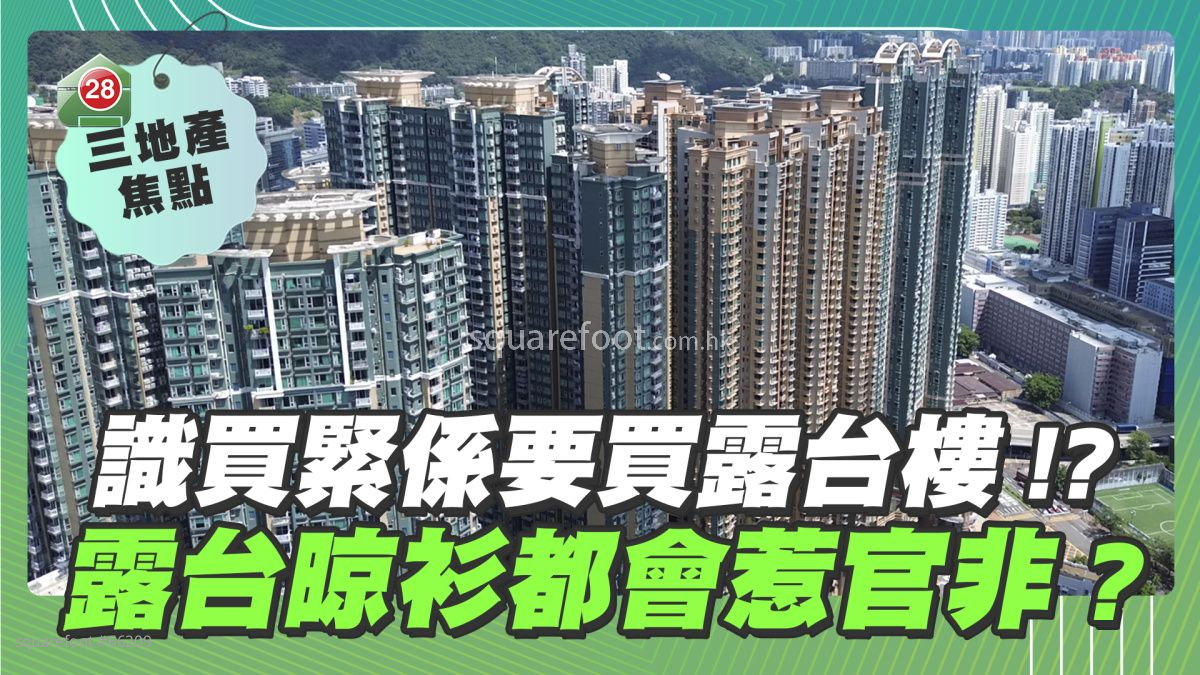- Home
- News
- Expert Blog
- Wed Property Focus
- Should You Buy A Property With A Balcony?
These days, more and more new developments come with balcony designs. But what are the pros and cons of having a balcony?
This trend dates back to the 2000s when the government incentivised developers to include balconies and utility platforms by offering floor area exemptions. The goal was to promote eco-friendly and innovative architecture, improving natural light and ventilation inside units. As a result, most new developments now come with both balconies and utility platforms.
One advantage is that units with balconies tend to have better ventilation and more natural light. Balconies also provide extra space for drying clothes, storing items, or keeping potted plants. In Hong Kong’s busy lifestyle, some people use their balconies as a place to unwind and enjoy the view.
Drying clothes on the balcony is a popular option, as sunlight helps them dry faster. However, it's important to note that not all balconies are suitable for this purpose, and a simple mistake could lead to legal issues.
To preserve the building's appearance, some developers include clauses in the deed of mutual covenant that prohibit hanging clothes above balcony railings. In stricter buildings, residents may be banned from using the balcony for drying clothes or placing plants or other items, to avoid affecting property values. Violating these rules could result in a formal notice or even legal action.
According to the Residential Properties (First-hand Sales) Ordinance, the usable floor area of a unit includes the area of the balcony and utility platform but excludes spaces such as air-conditioning ledges, bay windows, mezzanines, terraces, gardens, parking spaces, rooftops, and courtyards.
One major downside is that the balcony area is included in the unit's usable floor area, which means units with balconies are often more expensive. Additionally, as apartments in Hong Kong are getting smaller, particularly with the rise of nano flats, the actual saleable space becomes even more limited once the balcony area is taken into account.
Another disadvantage is that balconies, being open areas, are more prone to accumulating dust and require more upkeep. Can you enclose them with windows or railings? Unfortunately, no—this would be considered unauthorised construction, and the Buildings Department may issue a demolition order if it's discovered.
Ultimately, whether you choose a unit with a balcony depends on your lifestyle. For example, if you primarily use a dryer for your clothes, you might not need outdoor space for drying, making a balcony less essential. In that case, a unit without a balcony could suit you better.
Like
| Property Type | Price | Ads Period |
|---|---|---|
| For Sale Property | ||
Normal Listing Typical One | HKD:1000 (or Hsemoney:1000) | Valid:90 days |
Golden Top Listing Higher position than Top listing 2-3times better performance | HKD:3000 (or Hsemoney:3000) | Valid:60 days |
| Rental Property | ||
Normal Listing Typical One | HKD:1000 (or Hsemoney:1000) | Valid:80 days |
Golden Top Listing Higher position than Top listing 2-3times better performance | HKD:3000 (or Hsemoney:3000) | Valid:60 days |
